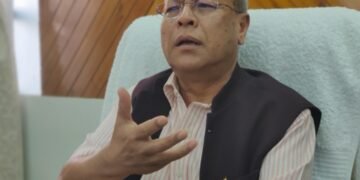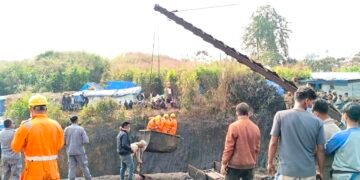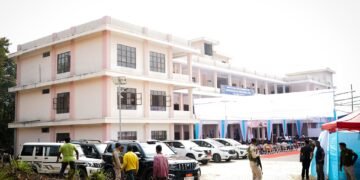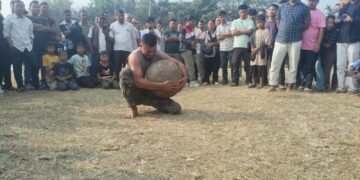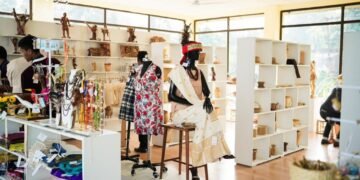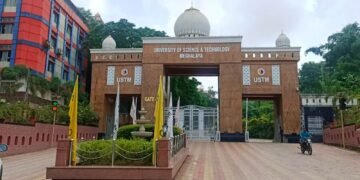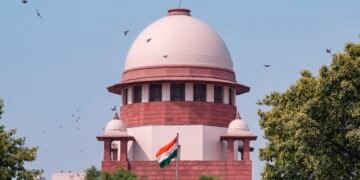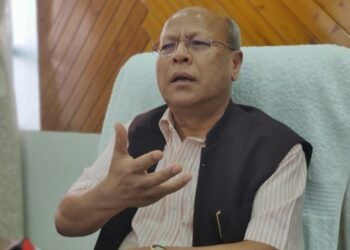Hi-tech surveillance technology debuted today into this hill state with Radio Frequency Identification (RFID) issued to tag every delegate and visitor including media persons entering the premises of Hotel Courtyard Marriott, here for the two-day Space Economy Leaders Meeting (SELM) precursor event.
The hi-tech system was brought in by the G20 secretariat to cover the security needs of the hi-profile event.
It was a “space age’ event with exhibitions of space technology on display but when it came to the code of transparency it was the same old medieval outlook where spaces were kept out of bounds of the curious, particularly for the press fraternity.
Journalists were the first to come uncomfortably face to face with impact of RFID tracking when some of them nonchalantly wandering around the venue in the course of their work, found themselves stopped short by their own mug-shots, name and designation, suddenly appearing on a big monitoring screen at the entrance of the conference hall of the G20 meet, with the legend in bold caps, “NOT ALLOWED” under the photo.
It was embarrassing to say the least with the people milling around that place to be publicly tagged like that. In the non-space age days, it used to be the friendly human security officer in traditional uniform on duty who would politely block the way and say that “Press is not allowed inside”.
To be sure the press had already been instructed that they are permitted to enter the conference hall only to cover the inaugural session. They do not have permission to cover the technical session of the meeting which according to the program sheet included an address by Somanath S, secretary, Department of Space (DOS)/Chairman of ISRO, Dr Pawan Kumar Goenka, Chairman IN-SPACe, Ambitabh Kant, G20 Sherpa, Pankaj Chaudhury , Minister of State Finance, Dr Jitendra Singh, Minister of State PMO and Conrad Sangma Chief Minister of the state followed by sessions to discuss “Space Economy perspectives of G20 and Space Economy Policy perspectives.
However reporters being reporters, it is routine for them to loiter around the main venue, even if they are not allowed inside, to catch any delegates for a quick comment and/or seek interviews. But as said above it was a shock for several to see their photos and names up on the near life-size monitoring screen on the wall near the conference hall with a computerized RFID system telling them “NOT ALLOWED” to enter.
Some of the journalists found this new experience with hi-tech security system hilarious and took photographs of themselves with the legend on the monitor.
Shillong as one of the oldest capital cities in the country has hundreds of National and International events in its history. It is a known fact that there are conferences where full access is allowed for the journalists and others where there are restrictions to entry into the technical or business sessions. But this is the first time that they have been stopped by a digital boundary created by RFID technology.
When asked about whether transparency was being sacrificed by not allowing journalists to listen to the sessions and also the use of the hi-tech tagging technology, Chief Minister Conrad Sangma said that this is an event organized by the G20 co-hosted by Meghalaya, department of Space, the administrative aspects of who can come in and not is not something that I as chief minister will sit down and make the list, these are security measures”. He said that he would take up this concern, and went on ahead to ask for “more realistic” questions about the event.
According to sources, this is the first time that RFID technology is being used in Meghalaya as a security tool. The system was brought in by the G20 secretariat and does not belong to the state as Meghalaya is yet to acquire the technology.
Sources said that every delegate, personnel from different departments, press and staff have been issued ID cards which are RFID tagged with details of the persons and where they are allowed to go and which is out of bounds for them i.e access rights. Through this the persons can be tagged wherever they go within the venue.
A report in a Guwahati based newspaper G-Plus explaining about the RFID system (which was introduced in Assam for the first time in the G20 event held there in February last,) over there, said, “The organizers hoped to track the movement of the participants. The delegates movements are being constantly monitored by readers installed at the entrances to each hall and their entry and exit times are also being recorded as they move from one hall to the other. A source in the security agency said that the card readers were installed and connected to a screen at every entrance so that the security personnel deployed near the entrance can easily identify if anyone is not expected to attend the meet. Even the media had limited access and was only allowed in the halls where press conferences were organized.
Security concerned sources said that they found the RFID surveillance system useful and hoped the state also acquires it.

